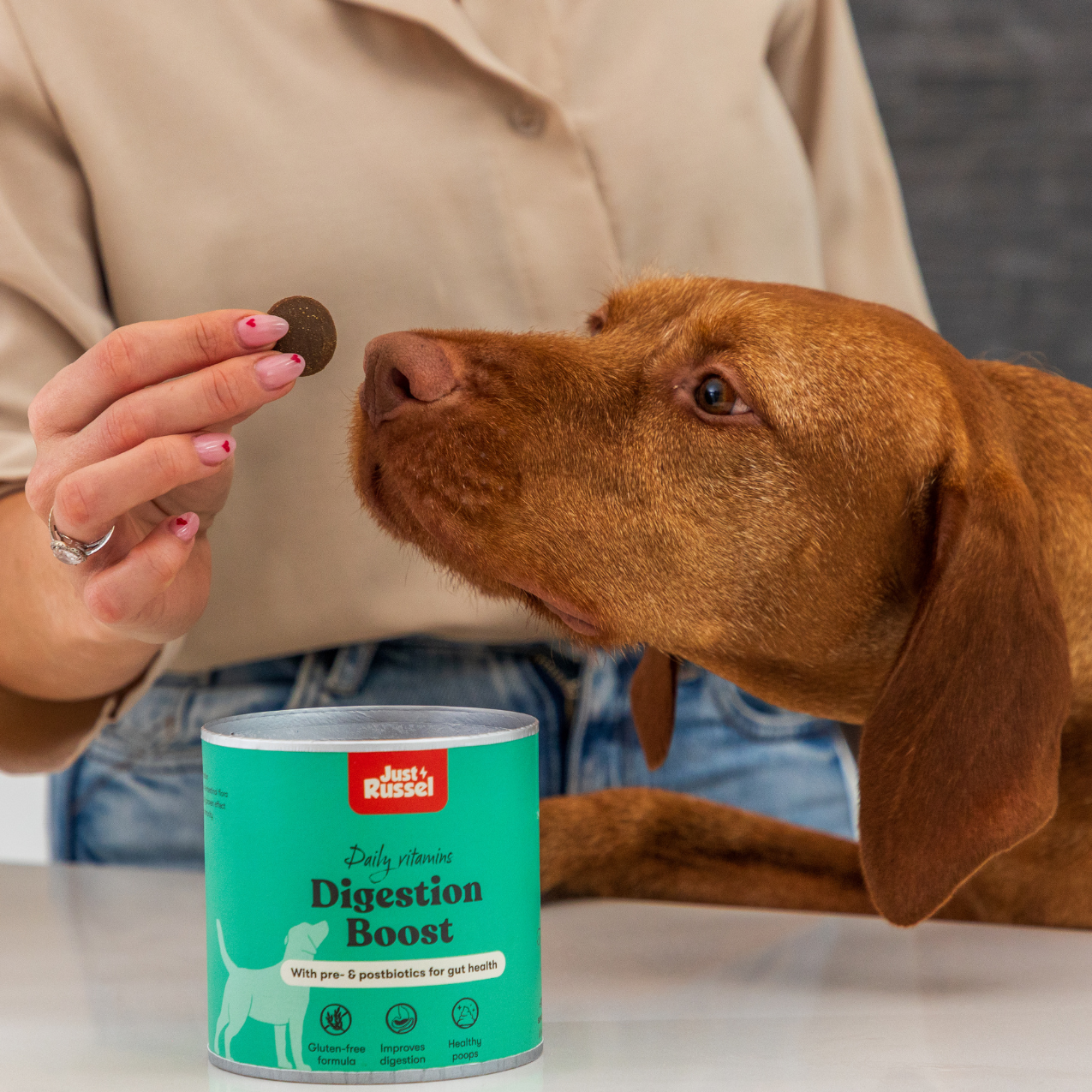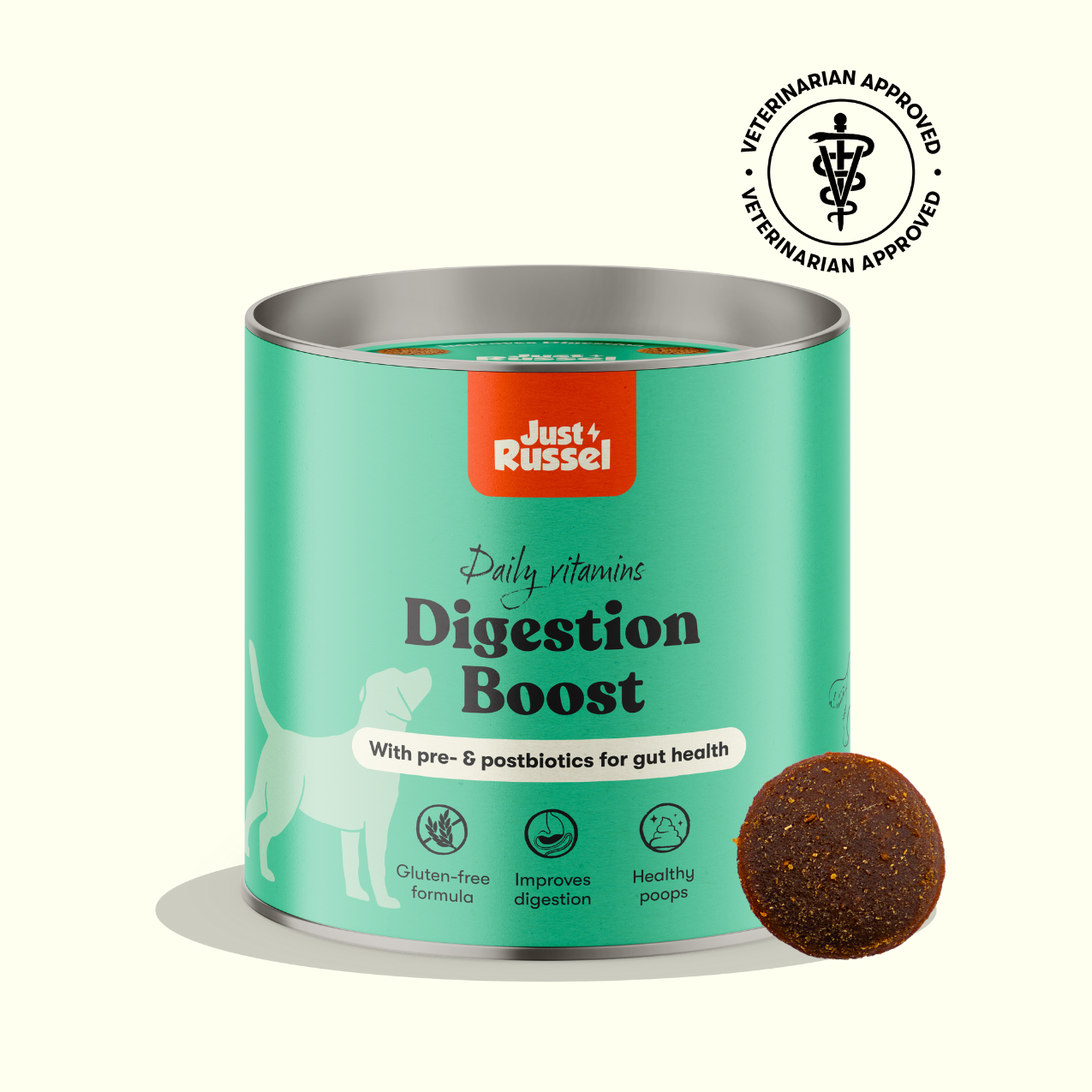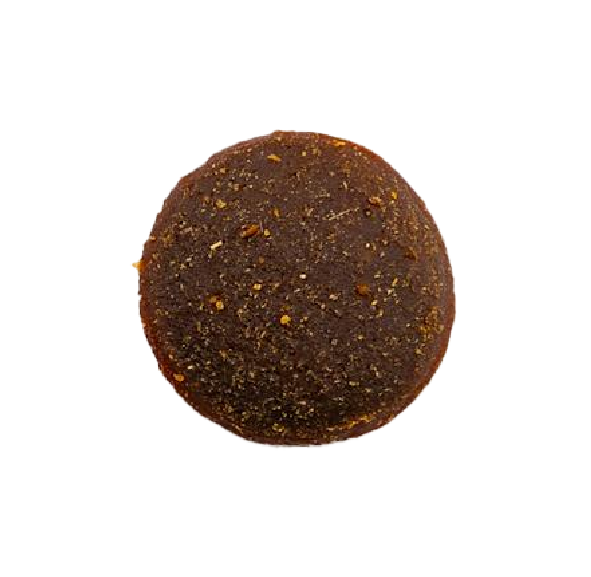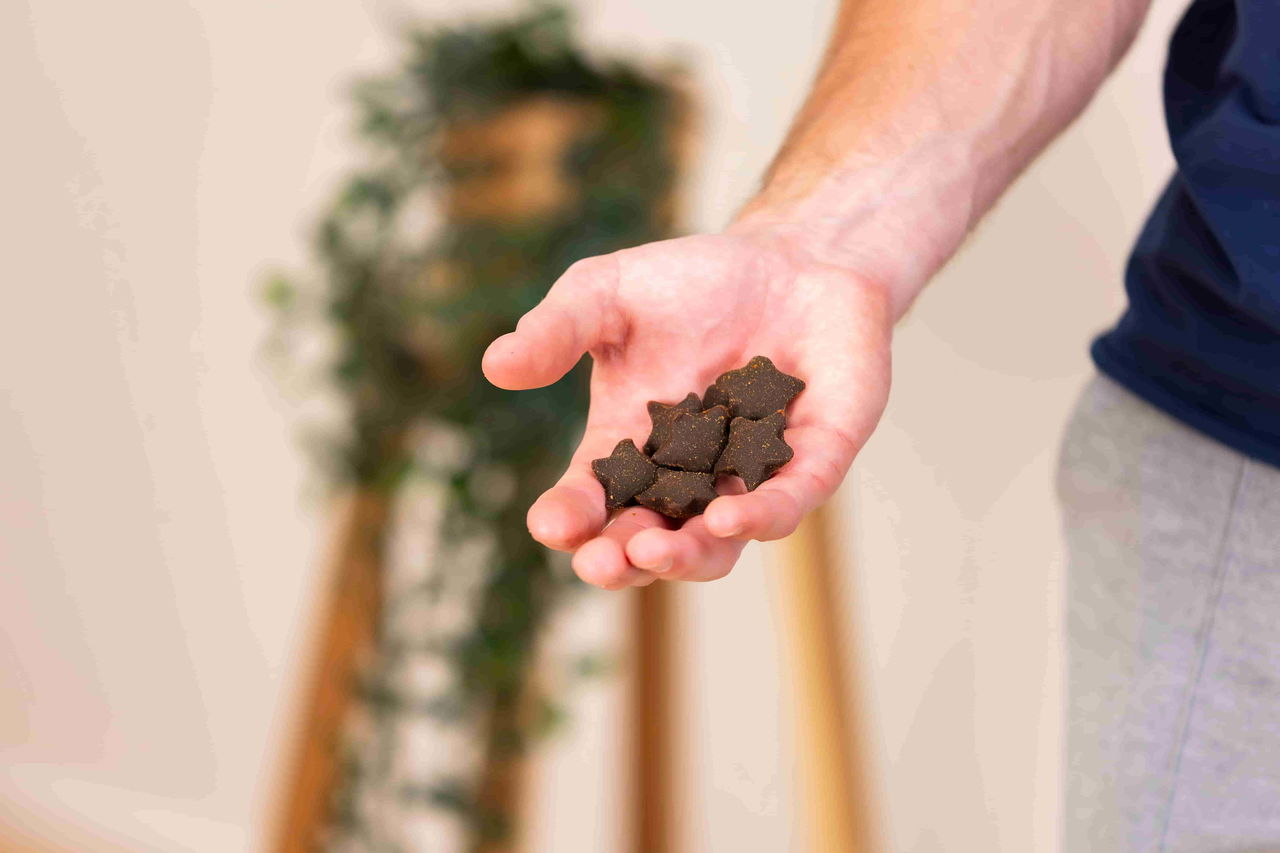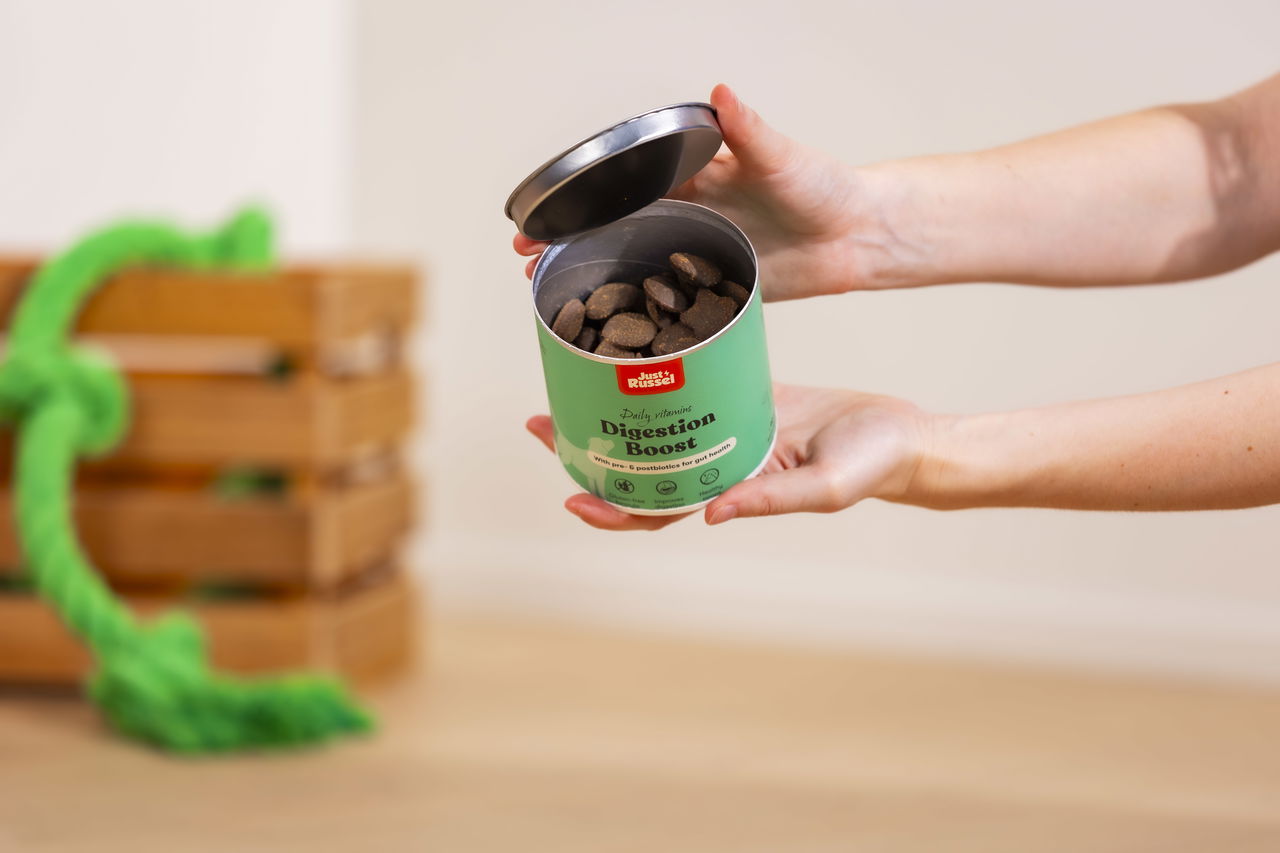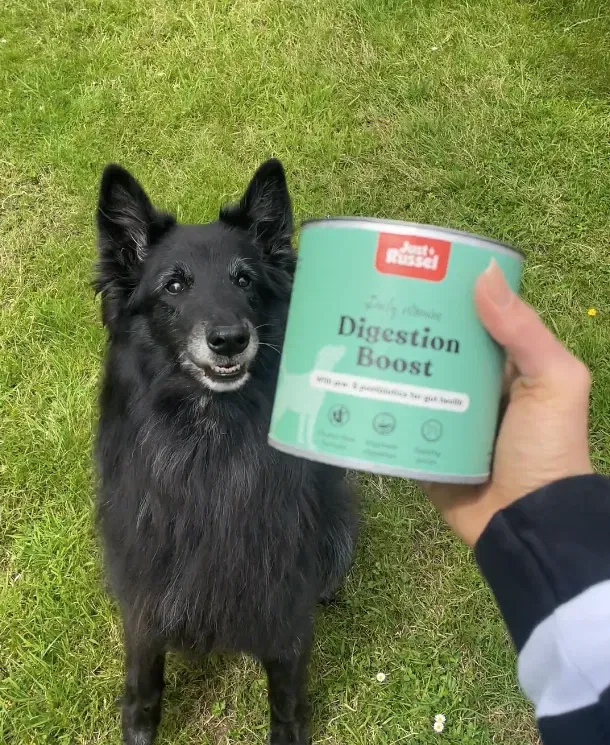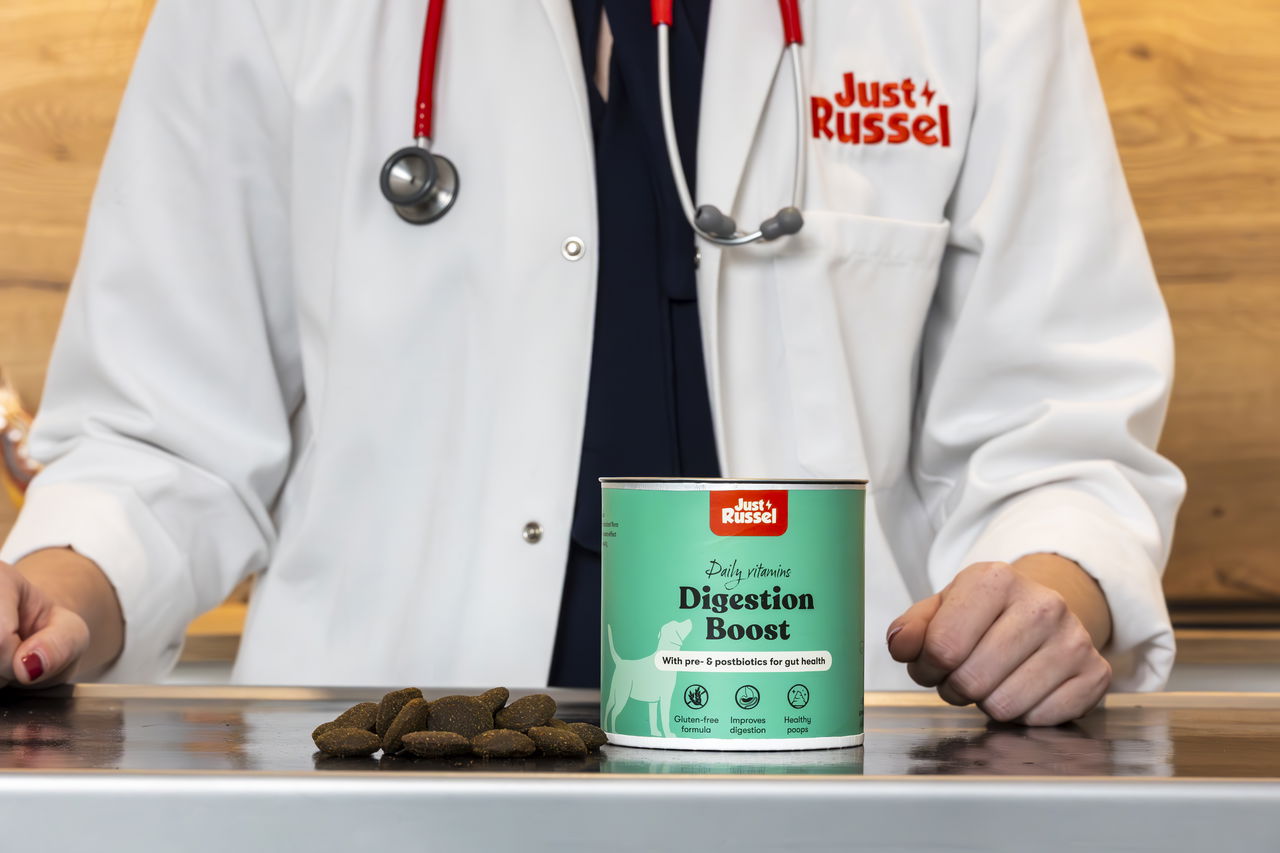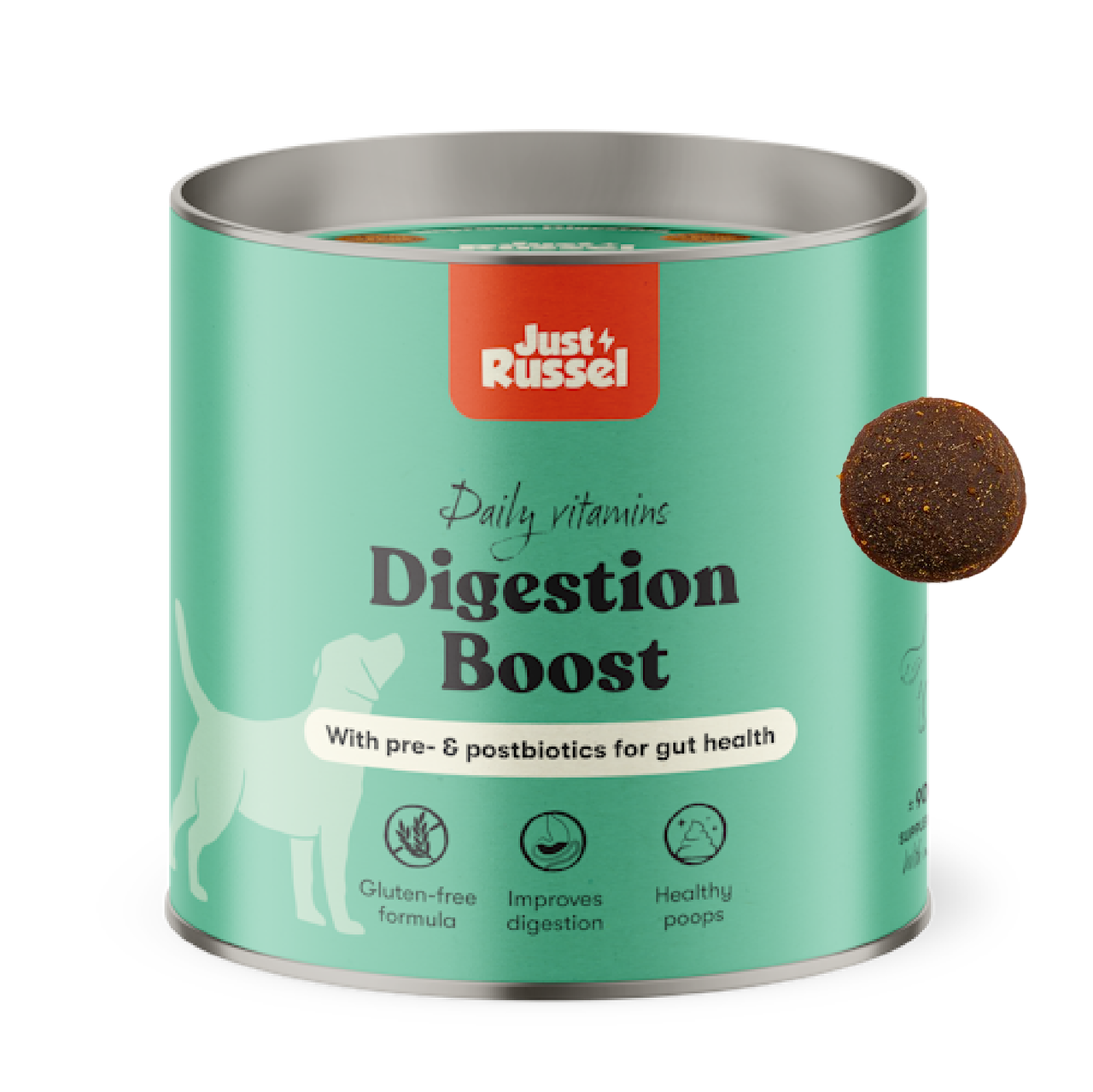Anal Gland Inflammation in Dogs
Symptoms, Causes, and Solutions
Anal gland problems are more common in dogs than many owners think. If not addressed in time, they can escalate into serious complications. Fortunately, you can easily prevent them with the right measures. In this article, you'll discover how to recognize anal gland problems, what causes them and what steps you can take to keep your dog healthy and comfortable.


Joy Cleymans
Veterinarian
What you'll find in this article:
What Are Anal Glands?
And why are they important?
Anal glands are small sacs located on either side of the anus. They secrete a scented fluid that is normally released during defecation. This process helps dogs communicate with each other.
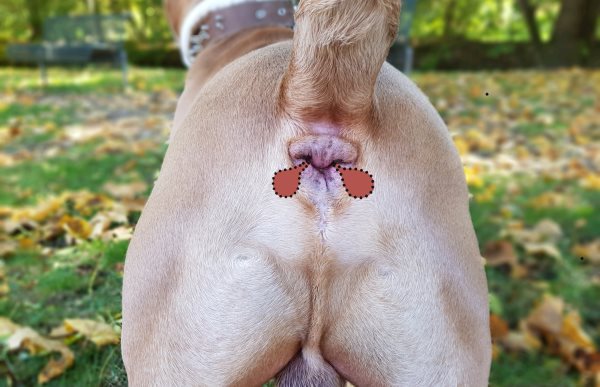
Symptoms of Anal Gland Problems in Dogs
Here’s how to recognize if your dog has anal gland problems:
Scooting
– Your dog drags its rear across the ground to relieve irritation caused by accumulated gland secretions.
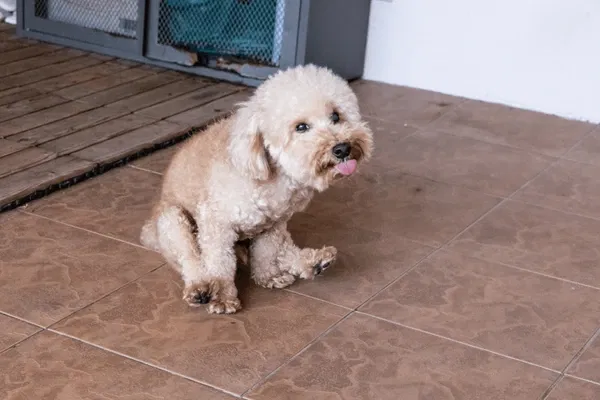
Excessive Licking or Biting
– Especially around the tail and anus, as the blockage causes itching and pain.
Foul Odor
– A strong, fishy smell occurs when the glands do not empty properly or when an infection is present.
Visible Swelling
– The accumulation of glandular fluid can cause a red, swollen lump that feels painful.
Difficulty Defecating
– The pressure and pain from clogged anal glands can make it hard for your dog to poop or cause excessive straining with little or no success. It is important to take these signs seriously, as an untreated blockage can lead to a painful infection or even an abscess.
Causes of Anal Gland Inflammation
Anal gland infections occur when the glands do not empty sufficiently.
If the glands are not properly emptied, waste materials and mucus can accumulate in the sacs. This can lead to thickening of the fluid within the glands. As pressure increases, inflammation can develop, eventually leading to infections and even painful abscesses. In severe cases, these abscesses can rupture, causing significant discomfort and a high risk of infection.
Causes of Poor Anal Gland Emptying
Overweight
– Overweight dogs are more prone to clogged anal glands. Excess fat around the anus puts pressure on the glands, preventing them from emptying properly. Additionally, overweight dogs tend to be less active, negatively affecting digestion and further impairing the natural emptying of the anal glands.
Allergies
– Food and environmental allergies can lead to chronic inflammation of the anal glands. Allergic reactions often involve intestinal inflammation and an imbalanced gut microbiome, affecting gland function.
Genetic Predisposition
– Some breeds, such as French Bulldogs and Cocker Spaniels, are more susceptible to anal gland problems. This may be due to anatomical abnormalities or inefficient gland function, making blockages more likely.
Lack of Fiber
– Insufficient fiber intake can result in stools that are too soft to apply the necessary pressure on the glands for natural emptying. Tailored nutrition or the right dietary supplements ensure that your dog receives the proper nutrients daily.
Consequences of Untreated Anal Gland Problems
If a blockage is not addressed in time, the situation may worsen:
Pain and Discomfort
– The accumulated fluid exerts pressure on the glands, causing pain.
Inflammation and Infections
– The glands can become inflamed, leading to redness and swelling.
Abscesses and Open Wounds
– In severe cases, the glands may burst, resulting in painful sores.
A Vicious Cycle of Manual Expression
– If the anal glands are frequently manually emptied, they may become dependent on this process and lose their ability to empty naturally, leading to recurrent issues, monthly veterinarian visits and
High Veterinary Costs
– Repeated treatments, antibiotics, and flushing procedures can become costly over time. In severe cases, surgical removal of the glands may be necessary, which is not only unpleasant for your dog but also expensive.
To prevent complications, it is important to intervene at the first signs of a problem.
Solutions: What Can You Do About Anal Gland Problems?
For severe or recurring symptoms, it is always important to consult a veterinarian. If your dog is suffering from milder anal gland symptoms, it is best to opt for a long-term solution that ensures the problem does not keep recurring. There are several options to address anal gland problems.
Manual Expression
– A veterinarian or an experienced groomer can express the anal glands to provide relief. Trying to empty the glands yourself is strongly discouraged, as it can cause damage and worsen the situation.
Treating Allergies
– Allergies can trigger chronic inflammation, leading to digestive issues and anal gland problems. A hypoallergenic diet eliminates common allergens, reduces inflammation, and supports gut health.
Medication
– In some cases, a vet may prescribe anti-inflammatory drugs or antibiotics to treat an acute infection. This may help as a short-term solution, but it often only addresses the symptoms and not the underlying cause, meaning the problem may return later.
Adjusting or supplementing your dog's diet
– Dietary fiber helps create firm stools, which naturally empty the anal glands. Ensure that your dog’s daily diet has the right composition to meet its specific needs. You may also choose to supplement with a targeted formula that compensates for missing nutrients and helps prevent anal gland inflammation.
Conclusion
Good digestive health is essential for preventing and resolving anal gland problems.
– By acting in time and implementing the right measures, you can prevent and alleviate anal gland issues in your dog. Proper nutrition and supplement support can not only help resolve symptoms but also reduce the chances of recurrence. This way, you ensure that your dog remains comfortable and healthy while avoiding high veterinary costs for treatments.
We're here to provide trustworthy support
At Just Russel, it's our mission to make daily pet care easier and healthier.
Anal gland problems are one of the most common yet overlooked issues among dogs, often causing persistent discomfort, itching, and pain. We know how frustrating it can be to see your dog scooting, licking excessively, or struggling with inflammation—without a clear solution in sight.
Many pet parents resort to frequent vet visits for manual gland expression, which provides only temporary relief and can, over time, make the problem worse. Instead of continuously managing flare-ups, we believe in preventing them at the source.
A truly effective solution
We brought together a team of veterinarians, pet nutrition experts, and real dog owners who have experienced this issue firsthand.
Using cutting-edge scientific research and extensive real-world testing, we formulated Digestion Boost—a powerful, natural supplement designed specifically to support healthy digestion and promote the natural emptying of anal glands through nutrition.
Unlike other products that offer short-term relief, Digestion Boost works from the inside out, using targeted fiber blends, pre- & postbiotics, and natural anti-inflammatory ingredients to restore balance in your dog’s gut. This not only helps prevent anal gland blockages but also supports overall digestive health, improves stool consistency, and even enhances nutrient absorption—so your dog feels better, inside and out.
If you’ve been searching for a gentle yet effective, vet-approved solution that eliminates the stress of recurring anal gland problems, this is it.

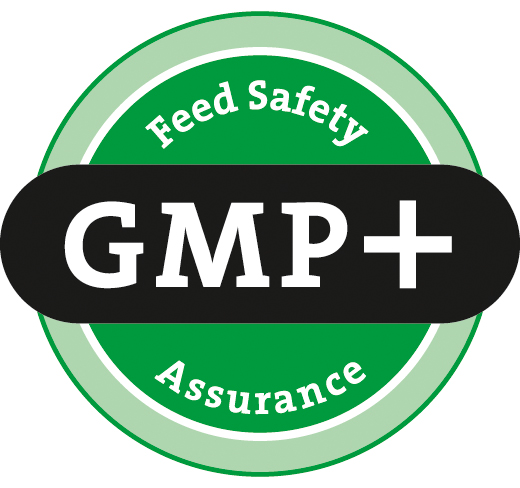


6.809 Reviews

Ingredients
Our formula is based on various scientific studies and consists of carefully selected ingredients that work together to support optimal digestive health:
How it helps:
Chamomile contains Bisabolol and flavonoids, which have anti-inflammatory and antimicrobial properties. This helps soothe irritated tissue, both in the intestinal wall and around the anal glands. Chamomile also has a relaxing effect on smooth muscles in the digestive tract, supporting healthy bowel function.
Effect:
Can reduce irritation and itching around the anal glands, promotes calm digestion and helps reduce inflammation.
How it helps:
Fennel seeds contain anethole, a natural compound with antispasmodic and carminative (gas-reducing) properties. This helps minimize excessive gas formation in the digestive tract and promotes smooth bowel function. Regular, comfortable bowel movements support the natural emptying of the anal glands.
Effect:
Prevents bloating and gas, reduces intestinal cramps, and supports stable digestion, contributing to better anal gland function.
How it helps:
Psyllium fibers are soluble fibers that absorb water in the intestines and form a gel-like substance. This increases the volume and viscosity of stools, providing firm, well-formed bowel movements. This naturally empties the anal glands when defecating. In addition, psyllium promotes healthy peristalsis and prevents constipation by improving bowel passage.
Effect:
Helps prevent constipation, promotes regular bowel movements and reduces the risk of accumulation of anal gland fluid.
How it helps:
Inulin is a prebiotic fiber that serves as a food source for beneficial gut bacteria such as Lactobacillus and Bifidobacterium. This helps maintain gut flora balance and promotes efficient nutrient digestion. Additionally, inulin increases water retention in stool, facilitating easier defecation and supporting anal gland emptying.
Effect:
Stimulates regular, well-formed bowel movements and supports a healthy gut microbiome, reducing digestive issues and anal gland blockages.
How it helps:
Flaxseed contains both soluble and insoluble fibers that regulate bowel movements and improve stool consistency. Additionally, flaxseed is rich in omega-3 fatty acids (ALA – alpha-linolenic acid), which have anti-inflammatory properties. This helps calm irritated anal glands and promotes a healthy skin barrier, which can help reduce itching or irritation around the anus.
Effect:
Ensures firm stools, prevents excessively hard or soft stools, and supports healthy digestion. Reduces anal gland inflammation and contributes to healthy skin around the anus.
How it helps:
MOS and FOS are prebiotics that stimulate the growth of beneficial gut bacteria and reduce the attachment of harmful bacteria to the gut wall. This contributes to balanced intestinal flora and more efficient digestion of nutrients, which directly affects stool consistency.
Effect:
Promotes firm, well-formed stools and helps reduce inflammation in the intestines, which can indirectly prevent anal gland problems.
Learn more about this product
Get our solution for anal glands issues delivered to your door, without shipping charges. 📦










